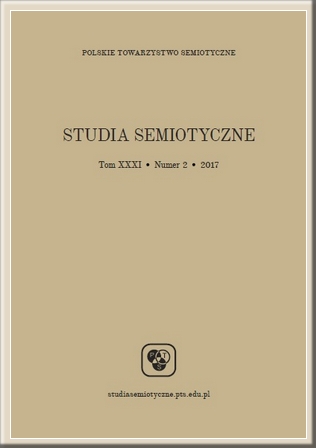Abstract
DOI: http://doi.org/10.26333/sts.xxxi2.04
Meaning Holism and Contextualism are standardly acknowledged to be similar relativistic theories that often lead to similar troubles, in particular to issues concerning instability. On the other hand, the main rival of Contextualism, which is Minimalism, is taken to be resistant to these problems. In effect, it seems inevitable to see Meaning Holism and Minimalism as natural enemies. In my paper, I attempt to reject such a view. My argumentation consists of three main parts. First, I argue that Minimalism does not differ that much from Meaning Holism with respect to the instability issues as it also faces some of them (although in a slightly different way from the case of Holism of Contextualism). Second, I put forward several arguments to show that in fact Minimalism is not incompatible with the two versions of Meaning Holism I distinguish, namely Global Holism and Local Holism. I argue that a meaning holist has to accept some not uncontroversial principles to become an antiminimalist – and vice versa. Finally, I demonstrate that Minimalism and Meaning Holism can be reconciled. Such a possibility occurs when something I called ‘purely semantic processes’ is allowed. The role of these processes is, roughly speaking, to protect literal meanings from being affected by strong pragmatic factors
References
Bach, K. (2005). Context ex Machina. In Zoltán Gendler Szabó (ed.), Semantics Versus Pragmatics (pp. 15–44). Oxford: Oxford University Press.
Bilgrami, A. (1998). Why Holism is Harmless and Necessary. Philosophical Perspectives, 12, 105–126.
Block, N. (1986). Advertisement for a Semantics for Psychology. Midwest Studies in Philosophy, 10, 615–678.
Block, N. (1994). An Argument for Holism. Proceedings of the Aristotelian Society, 95, 151–170.
Borg, E. (2004). Minimal Semantics. Oxford: Oxford University Press.
Borg, E. (2012). Pursuing Meaning. Oxford: Oxford University Press.
Brandom, R. B. (1994). Making It Explicit: Reasoning, Representing, and Discursive Commitment. Cambridge: Harvard University Press.
Brandom, R. (2000). Articulating Reasons: An Introduction to Inferentialism. Cambridge: Harvard University Press.
Cappelen, H., Lepore, E. (2005). Insensitive Semantics: A Defense of Semantic Minimalism and Speech Act Pluralism. Oxford: Wiley-Blackwell.
Cappelen, H., Lepore, E. (2006). Précis of Insensitive Semantics. Philosophy and Phenomenological Research, 73, 425–434.
Churchland, P. M. (1993). State-Space Semantics and Meaning Holism. Philosophy and Phenomenological Research, 53, 667–672.
Field, H. (1977). Logic, Meaning, and Conceptual Role. Journal of Philosophy, 74, 379–409.
Fodor, J. A. (1987). Psychosemantics: The Problem of Meaning in the Philosophy of Mind. MIT Press.
Fodor, J. A., Lepore, E. (1992). Holism: A Shopper’s Guide. Oxford: Blackwell.
Fodor, J. A., Lepore, E. (2002). The Compositionality Papers. Oxford: Oxford University Press.
Harman, G. (1973). Thought. Princeton: Princeton University Press.
Harman, G. (1993). Meaning Holism Defended. Grazer Philosophische Studien, 46, 163–171.
Jackman, H. (1999). Moderate Holism and the Instability Thesis. American Philosophical Quarterly, 36, 361–369.
Jackman, H. (2017). Meaning Holism. In Edward Zalta (Ed.), The Stanford Encyclopedia of Philosophy. Stanford: Metaphysics Research Lab, Stanford University.
Kawczyński, F. (2018, forthcoming). Meaning Holism and Contextualism[s] – Friends, Foes, or Else?
King, J., Stanley, J. (2005/2007). Semantics, Pragmatics, and the Role of Semantic Content. In Stanley 2007 (pp. 133–181). Oxford: Oxford University Press.
Kolbel, M. (2004). Faultless Disagreement. Proceedings of the Aristotelian Society, 104, 53–73.
Lormand, E. (1996). How to Be a Meaning Holist. Journal of Philosophy, 93, 51–73.
Odrowąż-Sypniewska, J. (2013). Kontekstualizm i wyrażenia nieostre. Warszawa: Semper.
Pagin, P. (2006). Meaning Holism. In Ernest Lepore and Barry C. Smith (Eds.),
The Oxford Handbook of Philosophy of Language (pp. 213–232). Oxford: Oxford University Press.
Peacocke, C. (1997). Holism. In Bob Hale and Crispin Wright (Eds.), A Companion to the Philosophy of Language (pp. 227–247). Oxford: Wiley-Blackwell.
Penco, C. (2001). Local Holism. In P. Bouquet, (Ed.), Lecture Notes in Artificial Intelligence (pp. 290–303). Dordrecht: Kluwer.
Récanati, F. (2004). Literal Meaning. Cambridge: Cambridge University Press.
Récanati, F. (2010). Truth-Conditional Pragmatics. Oxford: Oxford University Press.
Rovane, C. (2013). The Larger Philosophical Significance of Holism. In Ernest LePore and Kirk Ludwig (Eds.), A Companion to Donald Davidson (pp. 395–409). Oxford: Wiley Blackwell.
Stanley, J. (2000). Context and Logical Form. Linguistics and Philosophy, 23, 391–434.
Stanley, J. (2002). Making It Articulated. Mind and Language, 17, 149–168.
Stanley, J. (2005). Semantics in Context. In Gerhard Preyer and Georg Peter (Eds.), Contextualism in Philosophy: Knowledge, Meaning, and Truth (pp. 221–254). Oxford: Oxford University Press.
Stanley, J. (2007). Language in Context: Selected Essays. Oxford: Oxford University Press.
Stanley, J., Szabó, Z. G. (2000/2007). On Quantifier Domain Restriction. In Stanley 2007 (pp. 69–110). Oxford: Oxford University Press.


